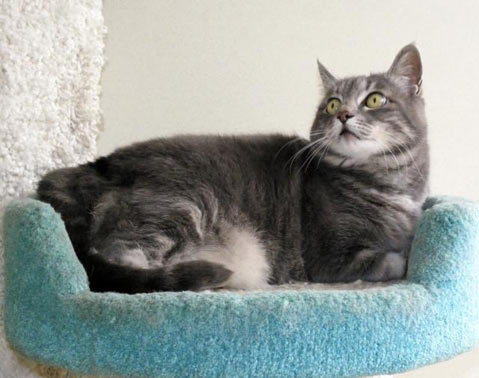Florida Cold Snap Harming Animals
People Aren’t the Only Ones Shivering in the South
During this time of the year, those of us who live in warmer climates relish in the fact that we can wear shorts in January. Here in Santa Barbara, we are blessed with year-round sunshine, temperate weather, beautiful beaches, and breathtaking views. Until last week, residents of southern Florida could boast the same sentiment. However, freakishly cold weather has been gripping the south, with snow flurries occurring in Orlando and record lows hitting Miami. In Florida, animals are no more used to this kind of cold than people and, unfortunately, the animals are suffering.
One animal species that seem to be hit the hardest are tropical fish. The subtropical temperature combined with the high water table makes Florida the best place in the world for outdoor farming of tropical fish. Florida provides 50 percent of the tropical fish sold nationwide and sales are usually booming in winter months. But this year, according to The New York Times, the cold spell has caused millions of tropical fish to perish. With record low temperatures, farmers have been scrambling to pump warm water into their outdoor ponds and cover them as much as possible. Some have even resorted to bringing their tropical fish inside into greenhouses, but with space constraints, it’s just not possible to save them all. Experts say that the number of fish who perished won’t be realized for several weeks.
The Miami Metrozoo is making every effort to help keep their animals warm. Zoo officials brought most of the animals indoors and handed out blankets to the orangutans. Some primates even got to sample hot chocolate. Space heaters were set up for the tropical birds and reptiles; slightly slower animals, such as tortoises, didn’t know better to remain inside their indoor enclosures, so they had to be locked in. The zoo had to close for the first time in 30 years.
With temperatures 20 degrees below normal, animals in the wild are even seeking refuge. More than 300 manatees (some weighing 3,000 pounds) waded over to Big Bend Power Plant in Apollo Beach where the heating system was turned on to warm the waters. Marine sanctuaries have rescued over 200 sea turtles from St. Joseph’s Bay in the Panhandle where they were stunned by the cold waters. Fresh water turtles are able to hibernate in mud; however, sea turtles don’t have that luxury. The rescued sea turtles will stay in a warm holding pool until they can be released back into the wild.
Wild iguanas are literally falling from trees. These poor animals become immobilized if the temperature falls below 40 degrees. Since these cold-blooded reptiles sleep in trees, they lose their grip during the night when the temperature falls and then they plunge from the trees—luckily, most of them remained unharmed. There are several interesting videos to watch about this phenomenon on youtube; here’s one example youtube.com/watch?v=3EFUxzGqQE0.
Animal experts are waiting to see how the area’s most undesirable critters survive —the Burmese python. Burmese pythons were introduced to southern Florida through the illegal exotic animal trade. They have been threatening the Everglades, the ecosystem, and the people since 2005. These pythons have no natural predators. If they survive this cold, experts worry that it will be an even bigger challenge to get rid of them.
Good news for the people and animals of the south, the cold weather trend seems to be changing. So don’t pack up your shorts just yet, come next week, you just might be able to wear them.

Adoptable Pet of the Week
Kashmir is a very sweet, domestic short haired female-spayed cat who still has a lot of love to give. If you can’t figure out where my name came from, all you have to do is pet her and you will understand. At 11 ½ years old, she is considered a senior, but is healthy and hoping to share the rest of her life with a loving companion. She is shy but will rub, head-butt, and snuggle like you’re the most special person in the whole world. Preferably a quiet home, perhaps with a cat or two, but no dogs!
For more information, visit the Santa Barbara Humane Society at 5399 Overpass Road, call 964-4777 or visit sbhumanesociety.org. Shelter hours are Mon.-Sat., 10 a.m.-4:30 p.m.



